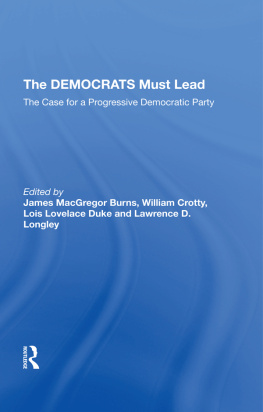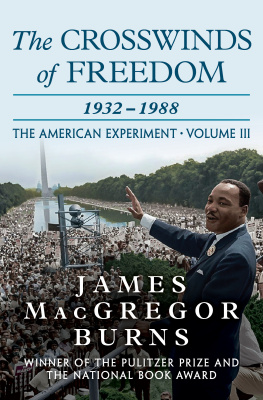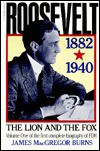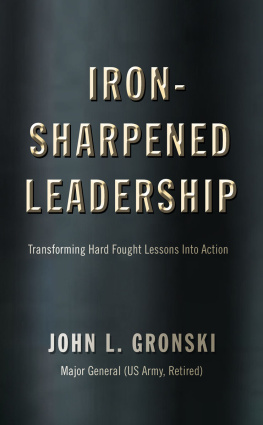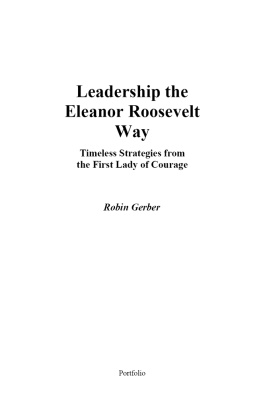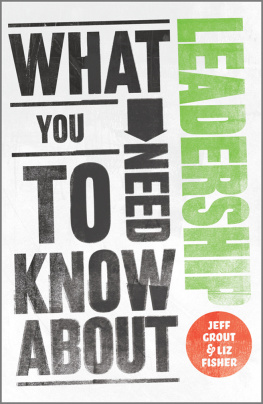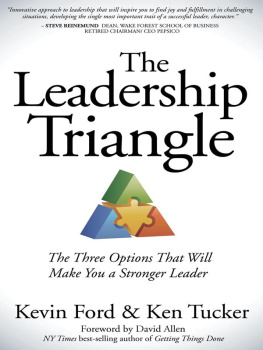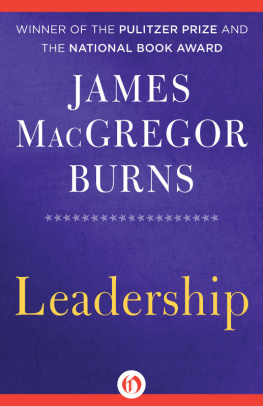Praise for Transforming Leadership:
Burns [offers] a new vision that focuses on the ways that leaders emerge from being ordinary transactional deal-makers to become dynamic agents of major social change who empower their followers.... [Transforming Leadership] culminates in a bold and innovative plan to address the greatest global leadership challenge of the twenty-first century: the long-intractable problem of global poverty.
The North Adams Transcript
Enlightening and empowering.
Meme Black, Berkshire Eagle
These accessible anecdotes, as well as Burnss explications of historical examples, will ensure [Transforming Leaderships] influence beyond its most obvious implications for political science.... Burnss underlying theory imagines leadership as part of a broader social process in which leaders and followers are closely interrelated.
Publishers Weekly
An excellent examination of the art of motivating, organizing, and directing people for the common good... Burns gives concise histories behind the subject matters before dissecting the different leadership styles of monarchs, politicians, and social reformers and the impact they have made throughout the world.
Michelle Kaske, Booklist
TRANSFORMING LEADERSHIP
Also by James MacGregor Burns
Congress on Trial
Roosevelt: The Lion and the Fox
Roosevelt: The Soldier of Freedom
John Kennedy: A Political Profile
The Deadlock of Democracy
Presidential Government: The Crucible of Leadership
Uncommon Sense
Leadership
The American Experiment (3 vols.)
The Vineyard of Liberty
The Workshop of Democracy
The Crosswinds of Freedom
Cobblestone Leadership: Majority Rule, Minority Power
A Peoples Charter: The Pursuit of Rights in America
(with Stewart Burns)
Dead Center: ClintonGore Leadership and the Perils of Moderation
(with Georgia J. Sorenson)
The Three Roosevelts: Patrician Leaders Who Transformed America
(with Susan Dunn)
TRANSFORMING LEADERSHIP
A New Pursuit of Happiness
JAMES MACGREGOR BURNS

Copyright 2003 by James MacGregor Burns
All rights reserved. No part of this book may be reproduced in any form or by any electronic or mechanical means, or the facilitation thereof, including information storage and retrieval systems, without permission in writing from the publisher, except by a reviewer, who may quote brief passages in a review. Any members of educational institutions wishing to photocopy part or all of the work for classroom use, or publishers who would like to obtain permission to include the work in an anthology, should send their inquiries to Grove/Atlantic, Inc., 841 Broadway, New York, NY 10003.
Printed in the United States of America
Printed simultaneously in Canada
Library of Congress Cataloging-in-Publication Data
Burns, James MacGregor.
Transforming leadership : a new pursuit of happiness / James MacGregor Burns.
p. cm.
Includes bibliographical references and index.
ISBN-10: 0-8021-4118-8
ISBN-13: 978-0-8021-4118-7
1. Leadership. 2. LeadershipHistory. I. Title.
HM1261 .B87 2003
303.34dc21 2002033258
Grove Press
an imprint of Grove/Atlantic, Inc.
841 Broadway
New York, NY 10003
Distributed by Publishers Group West
www.groveatlantic.com
08 09 10 11 12 10 9 8 7 6 5 4 3
For Milton Djuric,
a scholars scholar
PROLOGUE EMPOWERING HAPPINESS
How smoothly Thomas Jeffersons pen glided across the parchment:... Life, Liberty and the pursuit of Happiness. And how deeply were these words of the Declaration of Independenceexpressing the common stock of human rightsetched into the American consciousness.
But what did this gleaming passage mean? Surely Life must have stood for the survival of people, and of whole peoples, for their security against threats foreign and domestic. Liberty was clear to all in that time of rebellion against King George: protection from tyrannical and arbitrary rule, the freedoms later written into the Bill of Rights. And the pursuit of Happiness? This was not so clear. Enlightenment thinkers had philosophized about it during the eighteenth century; to Jefferson it represented down-to-earth needs. He would urge friends traveling in Europe to look into the by taking every possible occasion of entering into the hovels of the labourers... see what they eat, how they are cloathed, whether they are obliged to labour too hard; whether the government or the landlord takes from them an unjust proportion of their labour.
Thus the pursuit of happiness was not trivial pleasure seeking. It was fundamental to the conditions of peoples lives and to their efforts to change and to improve them. It was one of the great public values that took new form and urgency from the creative thinkers of the Enlightenment. Along with life, liberty, equality, justice, communityand intertwined with themthe pursuit of happiness was grounded in the most basic wants of was the chief drive and purpose of the human will. And John Locke saw transformational potential in the pursuit of happiness, as human beings struggled to change themselves and their world.
Yet in the time of the Enlightenment, as also in ours today, many of the worlds peopleperhaps most of themwere unable to eschew misery. It was not only that they lacked happiness. They lacked the opportunity and means to pursue it. They lacked, I will argue, the most potent agent for change, for unlocking the transformational capacities needed to make the pursuit of happiness more than a phrase on parchment.
Leadership is an expanding field of study that some day may join the traditional disciplines of history, philosophy, and the social sciences in scholarly recognition. Today, however, it remains in its growing stages; it has as yet no grand, unifying theory to provide common direction to thinkers and researchers. Even the meaning of the term itself remains controversial. Some will use it neutrally, dispassionately, to analyze qualities of both, say, a Gandhi and a Hitler.
I believe leadership is not only a descriptive term but a prescriptive one, embracing a moral, even a passionate, dimension. Consider our common usage. We dont call for good leadershipwe expect, or at least hope, that it will be good. Bad leadership implies no leadership. I contend that there is nothing neutral about leadership; it is valued as a moral necessity.
Summoned forth by human wants, the task of leadership is to accomplish some change in the world that responds to those wants. Its actions and achievements are measured by the supreme public values that themselves are the profoundest expressions of human wants: liberty and equality, justice and opportunity, the pursuit of happiness.
And if leadership is, as I believe, a moral undertaking, a response to the human wants expressed in public values, then surely its greatest taskthe task, even, of a global leadershipmust be to respond to the billions of the worlds people in the direst want, people whose pursuits of happiness might begin with a little food or medicine, a pair of shoes, a school within walking distance. They might seek some respect and dignity, some understanding of the interlocked burdens and frustrations of poverty as they, the poor, understand them. They might become followers of those who hear their wants and whose responsive leadership in turn empowers them, in the initial steps of a leadership process that might break the vicious circle of poverty.
Next page

